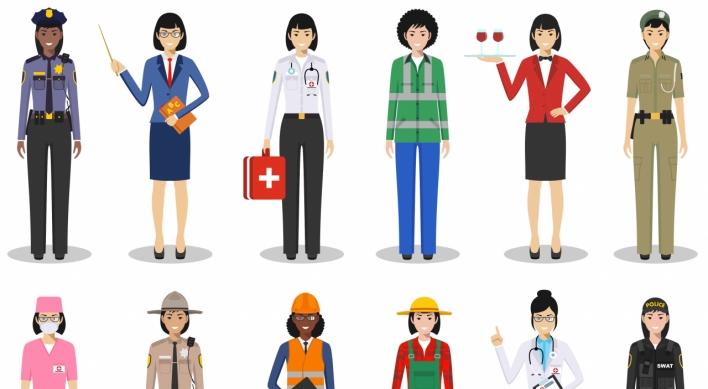S. Korea, Australia press Pyongyang on nukes
Ministers urge N.K. to comply with international obligations
By Korea HeraldPublished : July 4, 2013 - 20:35
South Korea and Australia on Thursday ratcheted up pressure on North Korea to renounce its nuclear ambitions, urging the communist state to abide by international commitments on its denuclearization.
South Korean Foreign Minister Yun Byung-se, Defense Minister Kim Kwan-jin and their respective Australian counterparts Bob Carr and Stephen Smith agreed to strengthen cooperation to tackle regional and global security challenges during their inaugural “two-plus-two” meeting in Seoul.
“The ministers called on the DPRK (North Korea) to choose a path toward peace through trust as has been offered by the international community including the Republic of Korea,” a joint press statement said.
South Korean Foreign Minister Yun Byung-se, Defense Minister Kim Kwan-jin and their respective Australian counterparts Bob Carr and Stephen Smith agreed to strengthen cooperation to tackle regional and global security challenges during their inaugural “two-plus-two” meeting in Seoul.
“The ministers called on the DPRK (North Korea) to choose a path toward peace through trust as has been offered by the international community including the Republic of Korea,” a joint press statement said.

The biennial talks were held as the two countries shared the need to deepen their strategic partnership on security, trade and other issues of mutual concern amid shifts in the dynamics of power that were triggered primarily by the rise of China.
With the Australian government expressing support for Seoul’s dialogue-based trust-building process to reengage with the North, Yun stressed the international community remained firm with a united front against Pyongyang’s nuclear adventurism.
“Along with Australia, Seoul would, on the one hand, try to lead the North to become a responsible member of the international community, and, on the other hand, to strengthen internal cooperation for the North’s denuclearization,” Yun said.
“The two countries shared the understanding that the North’s unrelenting provocative acts including its nuclear tests pose a serious threat to peace and stability in Northeast Asia and to the international nonproliferation regime.”
During the dialogue, the ministers agreed to beef up cooperation in maritime security, peacekeeping operations, humanitarian assistance and disaster relief. They agreed to increase the scope of cooperation in military exercises to improve their defense capabilities.
The officials also agreed to consider expanding their people-to-people exchanges among their strategy, policy and military personnel, and explore ways to strengthen science and technology cooperation in the defense sector.
Military cooperation between the two countries has deepened in recent years since they adopted a joint statement on enhanced global and security cooperation in March 2009.
“South Korea and Australia share the same values of free democracy and market economy and have emerged as the central middle-power nations in the Asia-Pacific,” Defense Minister Kim said during a joint press conference.
“We share the understanding that regional peace and stability serve mutual interests and based on this, we have been continuing our strategic partnership.”
During the ministers’ talks, the two sides also confirmed their commitment to the conclusion of negotiations on their bilateral free trade agreement, noting that the deal would spur economic growth and create jobs in both nations, and help regional economic integration.
Commenting on what observers call a “strategic dilemma” that Australia and Korea face due to the possibility of a conflict between their security alliances with the U.S. and economic ties with China, Smith said Australia’s relationships with the two big powers were “not a zero-sum game.”
“We see no conflict between our alliance with the U.S. and growing relationship with China, nor do we see any conflict about the ongoing importance of the U.S. and China’s rise,” he said during the press conference.
“There is no need for any choice here. We see optimistically China emerging as a positive force, and we see the key to that emergence is a good, productive relationship with the U.S.”
Later in the day, Carr and Smith visited President Park Geun-hye at Cheong Wa Dae. Park expressed her gratitude to Australia for having fought for South Korea under the U.N. banner during the 1950-53 Korean War and helped the joint international investigation into North Korea’s torpedoing in March 2010 of the South Korean corvette Cheonan, which killed 46 sailors.
By Song Sang-ho (sshluck@heraldcorp.com)
-
Articles by Korea Herald











![[Herald Interview] Director of 'Goodbye Earth' aimed to ask how we would face apocalypse](http://res.heraldm.com/phpwas/restmb_idxmake.php?idx=644&simg=/content/image/2024/05/03/20240503050732_0.jpg&u=)







